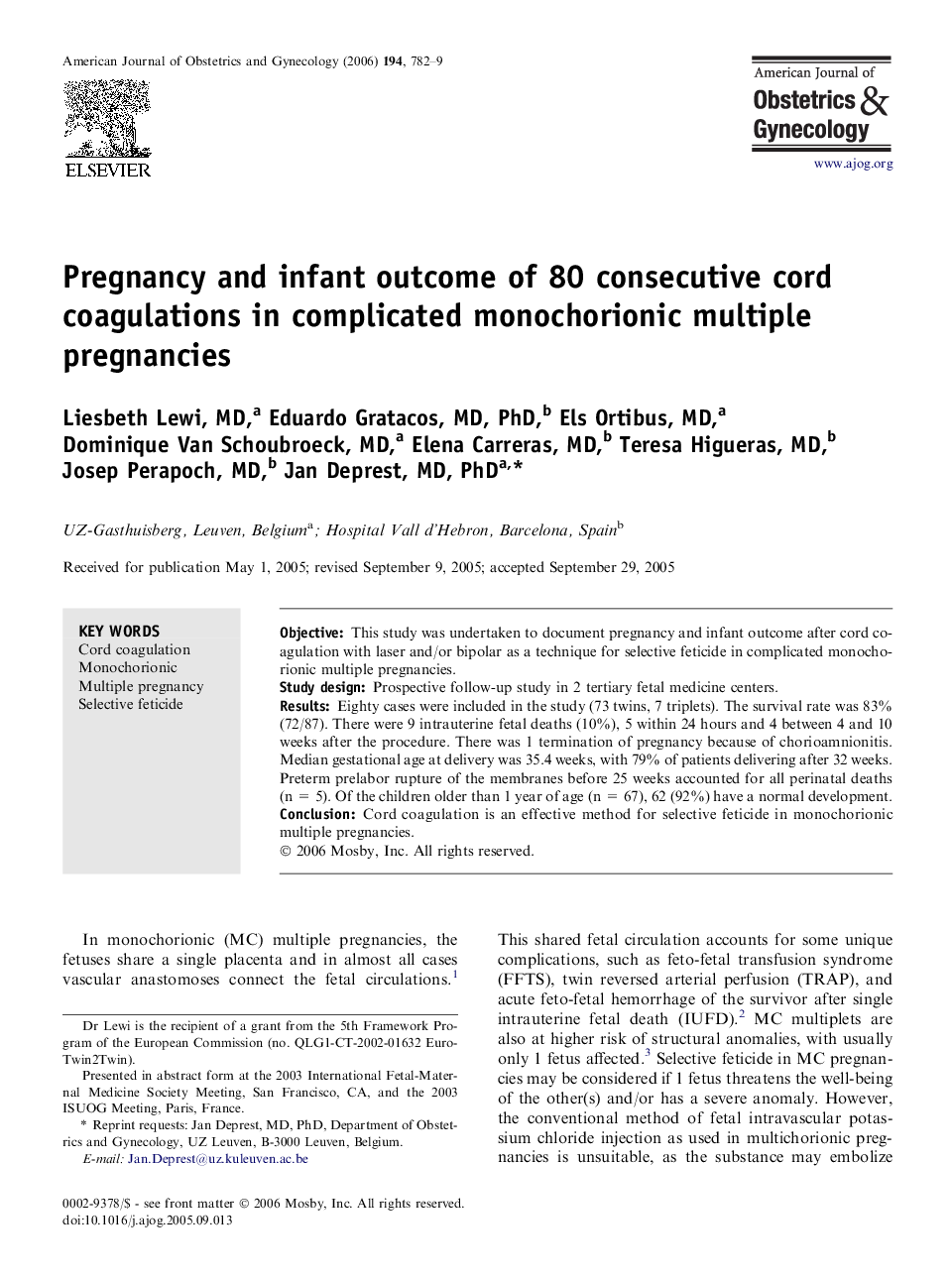| Article ID | Journal | Published Year | Pages | File Type |
|---|---|---|---|---|
| 3441683 | American Journal of Obstetrics and Gynecology | 2006 | 8 Pages |
ObjectiveThis study was undertaken to document pregnancy and infant outcome after cord coagulation with laser and/or bipolar as a technique for selective feticide in complicated monochorionic multiple pregnancies.Study designProspective follow-up study in 2 tertiary fetal medicine centers.ResultsEighty cases were included in the study (73 twins, 7 triplets). The survival rate was 83% (72/87). There were 9 intrauterine fetal deaths (10%), 5 within 24 hours and 4 between 4 and 10 weeks after the procedure. There was 1 termination of pregnancy because of chorioamnionitis. Median gestational age at delivery was 35.4 weeks, with 79% of patients delivering after 32 weeks. Preterm prelabor rupture of the membranes before 25 weeks accounted for all perinatal deaths (n = 5). Of the children older than 1 year of age (n = 67), 62 (92%) have a normal development.ConclusionCord coagulation is an effective method for selective feticide in monochorionic multiple pregnancies.
